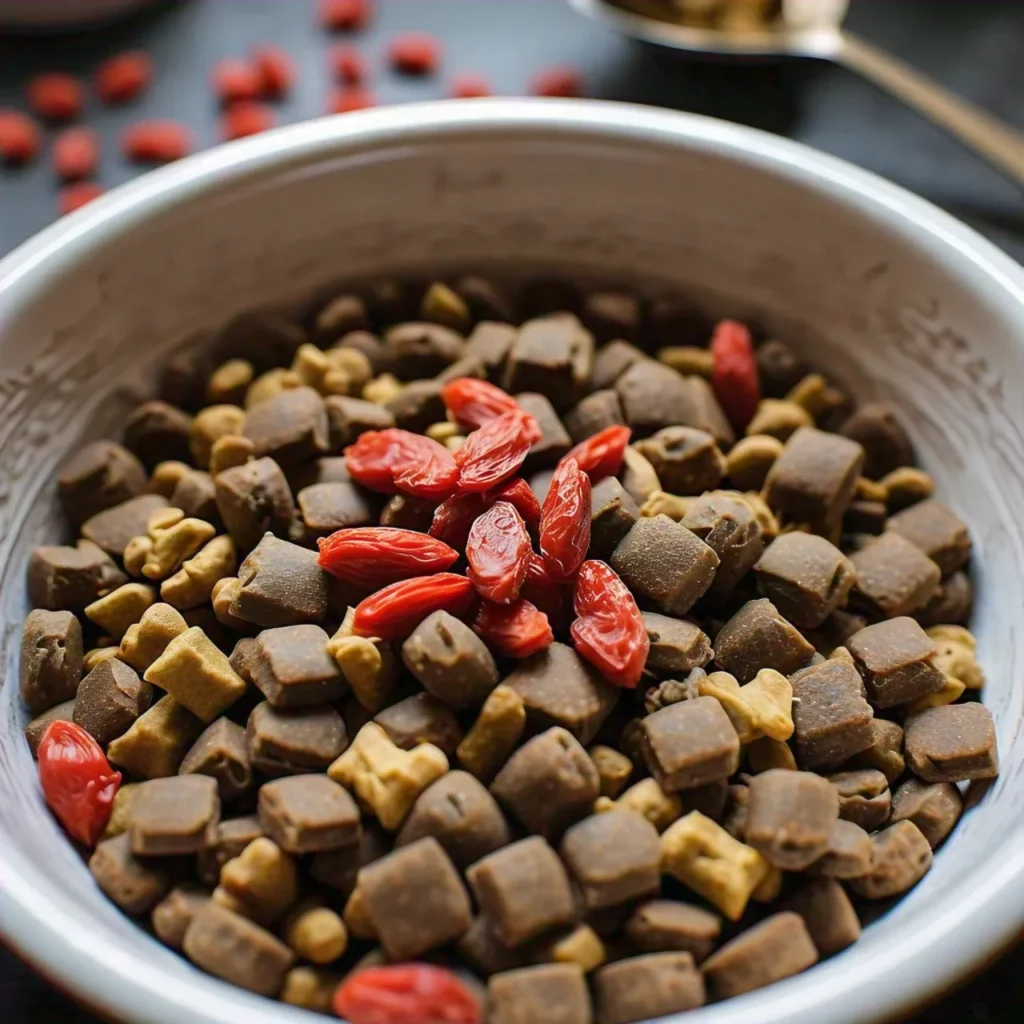As pet owners, we all want the best for our furry companions, and that includes feeding them nutritious foods that benefit their health. With the rising popularity of superfoods like goji berries in human diets, it’s natural to wonder if these nutrient-dense fruits are safe for dogs. In this comprehensive guide, we’ll explore the potential benefits and risks of feeding goji berries to your dog, how to do so safely, and what to watch out for.
What Are Goji Berries?
Goji berries, also known as wolfberries, are small, bright red fruits native to Asia. Packed with antioxidants, vitamins, and minerals, they have been used in traditional Chinese medicine for centuries and are often touted as a “superfood.” Rich in vitamin C, vitamin A, fiber, and iron, goji berries are believed to support immune function, improve skin health, and boost energy levels in humans. But does this translate to our canine friends?
Are Goji Berries Safe for Dogs?
The short answer is yes—goji berries are generally safe for dogs to eat in moderation. They are not toxic to dogs and can even offer some health benefits when given as an occasional treat. However, as with any new food, there are a few important considerations to keep in mind.
Potential Benefits of Goji Berries for Dogs
1. Rich in Antioxidants
Goji berries are packed with antioxidants, particularly vitamin C and carotenoids, which help neutralize harmful free radicals in the body. In dogs, antioxidants can support immune health and reduce inflammation, which is particularly beneficial for aging dogs or those with joint issues.
2. Boosts Immune System
Thanks to their high levels of vitamin C and beta-carotene, goji berries may contribute to a stronger immune system for your dog. While dogs naturally produce their own vitamin C, additional amounts from their diet can help bolster their immunity, especially during periods of stress or illness.
3. Good Source of Fiber
Fiber is essential for healthy digestion, and goji berries offer a good source of dietary fiber. A small amount of goji berries in your dog’s diet could help regulate their bowel movements and maintain gut health.
4. Low in Calories, High in Nutrients
Goji berries are relatively low in calories but packed with nutrients, making them an excellent treat option for dogs who need to watch their weight or those with specific dietary restrictions.
Potential Risks of Goji Berries for Dogs

1. Risk of Overconsumption
While goji berries are safe in small amounts, overfeeding can cause gastrointestinal upset, including diarrhea or vomiting. Dogs have different nutritional needs than humans, and too many goji berries can lead to an imbalance in their diet. Moderation is key.
2. Allergic Reactions
Though rare, some dogs may have allergic reactions to goji berries. Symptoms to watch for include itching, swelling, hives, or digestive issues. If you notice any of these signs, discontinue feeding goji berries and consult your veterinarian.
3. Pesticides and Additives
Goji berries bought from conventional stores may be treated with pesticides or contain added preservatives. It’s always best to opt for organic goji berries or thoroughly wash them before offering them to your dog.
How to Safely Feed Goji Berries to Your Dog
If you decide to introduce goji berries into your dog’s diet, follow these steps to ensure it’s done safely:

- Start Small
Begin with just a few berries to see how your dog reacts. Monitor their behavior and digestion to ensure they tolerate the new food without any issues. - Serve in Moderation
Treat goji berries as an occasional snack, not a regular part of your dog’s meals. For small dogs, one or two goji berries is plenty, while larger dogs may enjoy a small handful. - Choose Fresh or Dried Berries
Both fresh and dried goji berries are safe for dogs. However, avoid those that contain added sugars or preservatives, as these can lead to obesity or other health problems. - Mix Into Their Food
You can chop up the berries and mix them into your dog’s regular food or serve them on their own as a treat. Some dog owners even blend goji berries into homemade dog treats or sprinkle them over kibble for added flavor and nutrition.
Personal Experience: Goji Berries and My Dog
I first considered giving goji berries to my dog, Max, after reading about their benefits in a pet health forum. Max is an energetic 6-year-old Labrador who occasionally suffers from digestive issues. After consulting with my vet, I introduced a small amount of dried goji berries into his diet.
To my surprise, Max loved them! I noticed that his digestion improved slightly, and he had fewer instances of loose stools. The key, as I learned, was moderation. Initially, I overfed him a bit, which led to a minor upset stomach, but once I limited his intake to a few berries a week, it worked out well.
This experience taught me that while goji berries can be a healthy supplement to your dog’s diet, it’s essential to tailor the quantity to your dog’s size and dietary needs. Max now enjoys them as a special treat, and I feel good knowing they’re adding a bit of extra nutrition to his day.
When to Avoid Goji Berries for Dogs
While goji berries are safe for most dogs, there are some situations where it’s best to avoid them:
- If your dog has diabetes: Goji berries contain natural sugars that could spike blood sugar levels.
- If your dog is on specific medications: Some compounds in goji berries may interact with medications, such as blood thinners. Always consult your vet if your dog is on any long-term medication.
- If your dog has a sensitive stomach: For dogs prone to digestive issues, goji berries may be too fibrous or cause discomfort, so it’s best to proceed with caution.
Final Thoughts: Should You Feed Your Dog Goji Berries?
Goji berries can be a safe and nutritious treat for dogs when given in moderation. Their high antioxidant content, vitamins, and fiber make them a healthy addition to your dog’s diet. However, it’s crucial to introduce them gradually, monitor for any adverse reactions, and consult your veterinarian if you have concerns.
Remember, while goji berries are a great occasional treat, they shouldn’t replace the essential nutrients your dog needs from their regular diet. As always, balance and moderation are key when introducing any new food into your pet’s routine.
